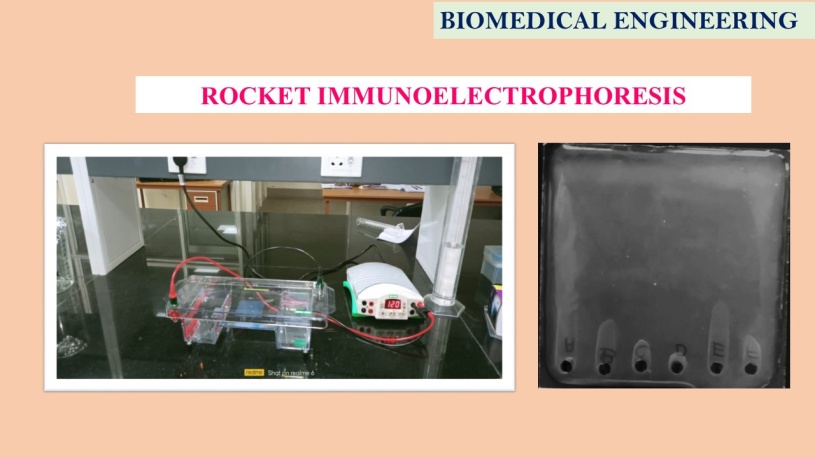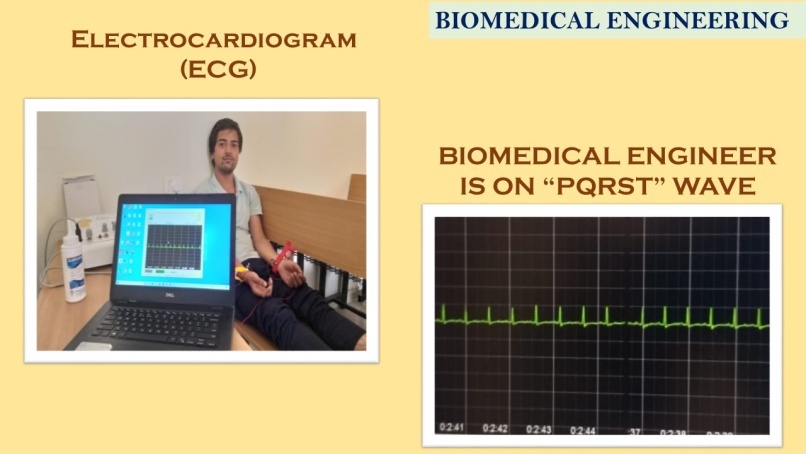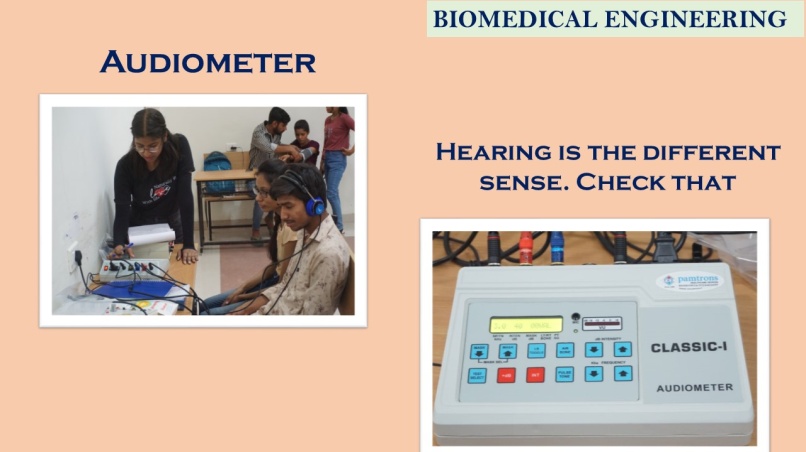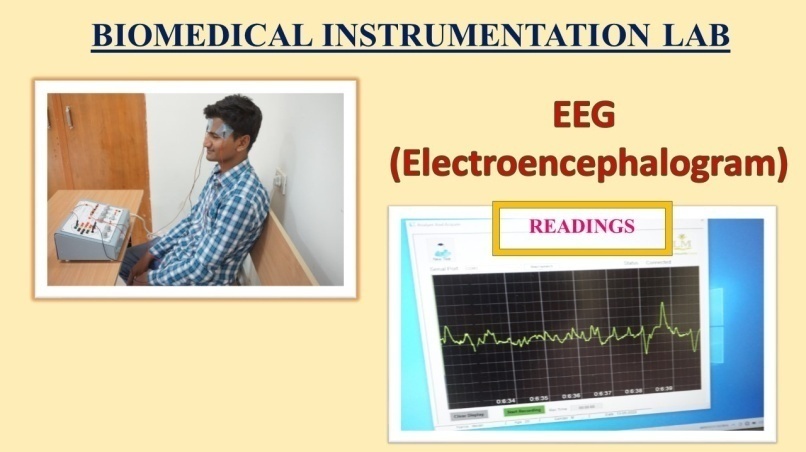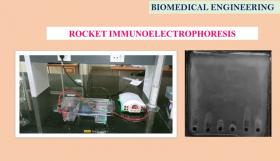Research themes/interests of BME department:
1. Therapeutics discovery Laboratory (under Swastha Bharat & biopharma mission): World Health Organization (WHO) has acknowledged that we are heading towards a post antibiotic era, particularly due to unprecedented rise in drug resistance along with limited availability of antimicrobial and affordable point of care diagnostics. Therefore, the department at present is focusing on antimicrobial drug discovery and point of care diagnostics with focus on tuberculosis. A multi pronged approach is followed for tackling this ever growing health care issue which include identification of novel drug target relevant to in vivo systems, innovative approaches to drug discovery for re-sensitization of existing drugs, exploring new and effective antigens for diagnostics and the use of immunoinformatics for vaccine design and development. The expansion under this theme shall include the exploration of novel approaches towards development of technologies evaluating PK/PD of drugs to minimise the use of animals.
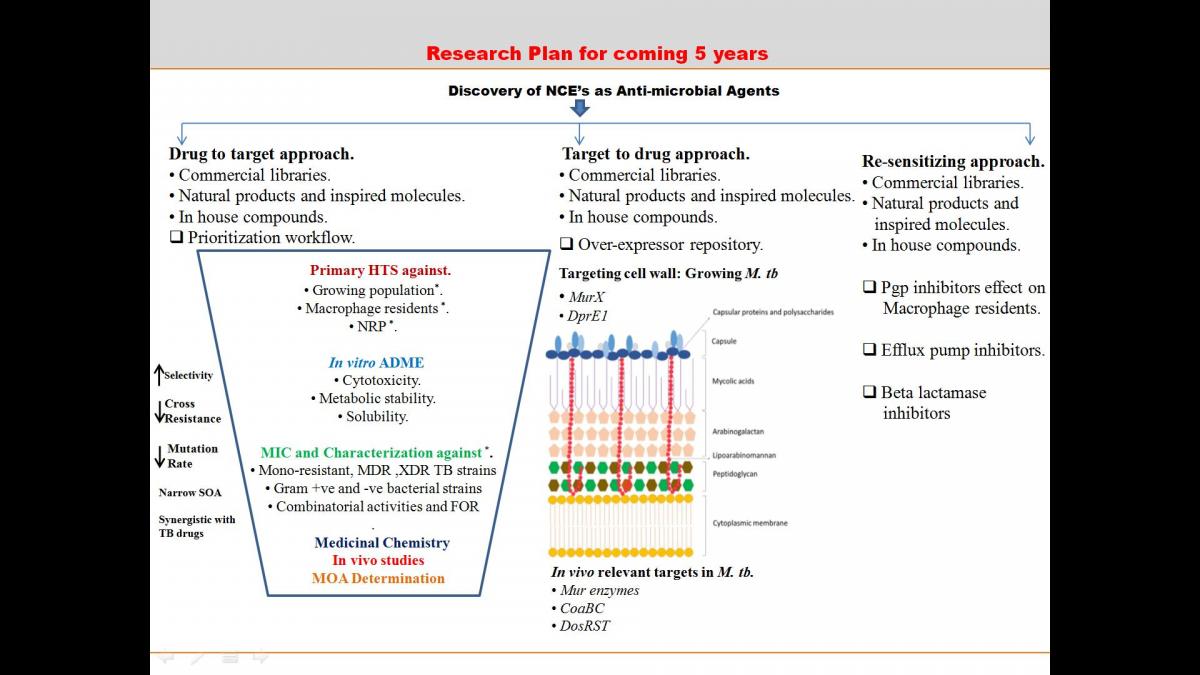
Recent results on NCE discovery and vaccine design:
2. Biomedical Sensors Lab (under Swastha Bharat and Swach Bharat):: The theme is dedicated towards the development of portable real-time fluorescent detection system (low cost) and implication in the field of food sample monitoring, health care diagnostic, and environment sample monitoring along with different biosensors (pH, urea, and glucose biosensors) using fluorophores, carbon quantum dots, polymers, and enzymes, establishment of a fluorescent-based technique (solution phase-based detection, thin-film-based detection) and point-of-use devices for analyzing different samples in different matrices, design of an algorithm for plaque detection in Coronary Artery, Designing and implementing repetitive pulse generators (microseconds) for Electrochemotherapy applications, developing understanding to produce a Nano-particle-based drug delivery system for cancer diagnostic and effective therapy and design and develop different image and signal processing techniques for better understanding.

3. Medical image analysis Lab (under Ayushman and Swastha Bharat): The application of AI for medical image analysis has given a boost to digital health. Digital health has given a key of advanced healthcare facility for the rural population. AI can assist the clinician in analysis of radiological images such as computed tomography (CT) and magnetic resonance imaging (MRI). The time can be a factor in case of cerebral attack or stroke. In India, the clinicians are overburdened and the application of AI can assist the clinician and save time and remove false negative and reduce false positive. The department is working on early detection of ischemic stroke from CT scans. Though, MRI is used for early in detecting cerebral stroke, but CT being economical is generally preferred over MRI. CT scan does not show any sign of ischemic stroke if done in early hour of stroke. AI can be assistive in this case for detecting the early sign of ischemic stroke and assist the clinician in early diagnosis of ischemic stroke.
4. One-Health and Food Safety (Under the Swastha Bharat and One Health Consortium)- Globally, Antimicrobial Resistance (AMR) is one of the most rapidly growing concerns for human and animal health, food safety, and the environment. Over the recent years, a growing body of evidence suggests that frequent and uncontrolled use of antibiotics in human medicine as well as in non-clinical settings such as in veterinary/agriculture has resulted in the rapid evolution and spread of antibiotic resistance. The main research is focused on understanding the burden of antibiotic resistance in the “One-Health” context, which includes animal health, human health, and environmental health; our research also focuses on the development of new strategies (Drug Discovery and Drug Repurposing) to combat MDR food-borne pathogenic bacteria which are directly related to public health and food safety.






